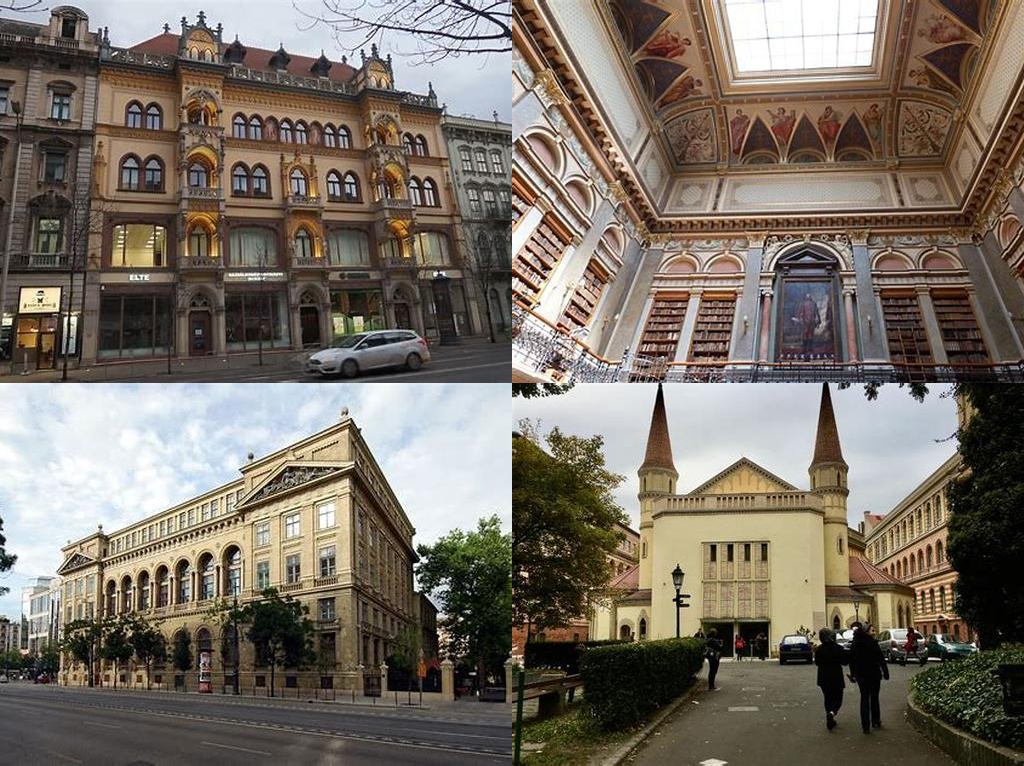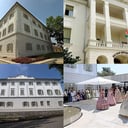
ELTE Bölcsészkar, or in English, the Faculty of Humanities at Eötvös Loránd University, is quite possibly the most living, breathing testament to Budapest’s intellectual spirit. If you like your urban discoveries to be drenched in stories of revolutions, philosophy, and passionate debates, be prepared—this isn’t just a place of learning, it’s a living stage of culture. When you stroll through the Múzeum körút area where the faculty is spread, it isn’t just about seeing beautiful buildings—you’re walking in the footsteps of some of the greatest Hungarian minds, stretching right back to the university’s foundation in 1635 by Péter Pázmány. History genuinely pulses under your shoes.
The charm of ELTE Bölcsészkar lies in its delicious blend of old and new. Set between 19th-century edifices, wide leafy streets, and courtyards that seem made for deep discussions, the faculty radiates an energy only years of scholarship and youthful ambition can produce. Inside the iconic main building, with its arched corridors and art-deco lamps, students leaning over battered books fill the air with caffeine and furious whispers. If the windows are open, you might even hear snippets of poetry, politics, or philosophical debates swirling out into the street. In the break between classes—known in Hungary as “szünet”—you’ll find students outside, perched on benches or sprawled in the grass, dissecting everything from Sándor Petőfi’s verses to the meanings of ancient Greek tragedies.
The area is peppered with places that are worth investigating even if you’re not taking a seminar yourself. The BTK Library, for instance, is a bibliophile’s dream and has a labyrinthine feel, with its pre-war furniture and that bookish smell that only centuries-old libraries can manage. Sometimes there are public lectures (and often, you can sneak into one, blending in amongst students). The faculty often hosts open seminars or film screenings, and atmosphere is democratic: don’t be surprised if you find yourself next to a literature professor at the campus café, discussing world cinema as if you’d always belonged. In spring and autumn, the leafy promenades in front of the university are dotted with book fairs, street musicians, and pop-up stands—so don’t hesitate to join locals flipping through vintage literature under the shade of towering chestnut trees.
What truly marks the Bölcsészkar is its layered presence in Hungarian history. Here is where the 1956 uprising echoed along the corridors, where future Nobel laureates and literary giants found their footing. In the Múzeumkert (the Museum Garden) next door, generations of students—sometimes rebellious, sometimes dreamy—have gathered to spark ideas or launch revolutions. Take a moment to sit within this garden, perhaps with a coffee, and soak in the spirit of thousands of students who, across centuries, have shaped not just the university, but Hungary itself.
For the visitor, ELTE Bölcsészkar is a place to breathe in the future and past all at once. Even if lectures are in Hungarian, the language of curiosity and discovery is truly universal. Don’t be shy to peek into exhibitions, roam the nearby bookshops, or even chat with the students on the steps—you’ll find they’re usually happy to share recommendations or even just a casual chat about Hungarian literature. If you have time, wander further to the riverside or the National Museum, both an easy stroll away, following paths that generations of thinkers have taken before. In doing so, you’ll find that some atmospheres don’t need translation—the intellectual life of Budapest quietly, playfully, insists on embracing you.





